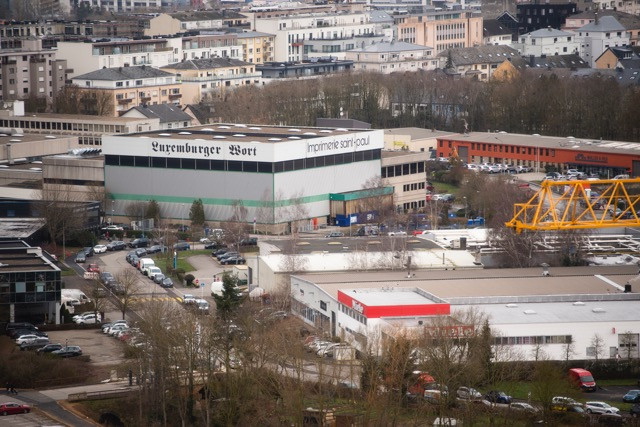The announcement on Monday morning did not reveal any financial details of the buy-out by Antwerp-based Mediahuis. However, the Wort said that Lafayette SA, which owned Saint-Paul, will remain involved as a minority stake holder. Lafayette manages the assets of the Archdiocese of Luxembourg.
Mediahuis owns Belgian paper De Standaard, Dutch titles including NRC Handelsblad and De Telegraaf as well as the Irish Independent, which it acquired just last year.
Saint-Paul publishes a French-language version of the Wort as well as Portuguese and English editions, Contacto and Luxembourg Times. Its stable also includes weekly TV listings guide magazine Télécran.
The company will retain CEO Paul Peckels as well as Wort editors-in-chief Roland Arens, Claude Feyereisen and Marc Schlammes. Peckels explained that the synergies discussed with the new owners will not affect content or the Wort’s editorial line, rather they will be technological and organizational. Part of the agreement is that the paper continues to publish communiqués from the Catholic church. “What is certain is that the content of each media will retain its local roots.” Peckels said
Other media players were taken by surprise by the announcement, even though, Mike Koedinger says that “behind the scenes in the European media scene it was known that Saint-Paul was looking for an industrial partner.” Koedinger, founder, co-CEO and executive chairman of as Maison Moderne, which publishes Delano, says that the good news is that Mediahuis is a “strategic and powerful partner that will contribute to the professionalization of the Luxembourg media landscape.”
Fragility of local media landscape
The bad news, Koedinger suggests, is that the acquisition “reflects the economic fragility of the local media landscape.” It is therefore imperative, says Koedinger, that the government moves forward with its bill to support media pluralism. Koedinger also wonders what impact this resale will have on the next legislative elections if the CSV, which has long had support from the Wort, has “less influence on the ‘tone of voice’ of the editorial coverage of the elections by the country’s premier daily newspaper.”
Christoph Bumb, co-founder and editor-in-chief of Reporter, and a former journalist at the Wort says that a shareholder with the scale and reputation of Mediahuis “will act differently than a traditional shareholder established in Luxembourg and will be able to take other decisions to rationalise the group.” Bumb also says that the buyout does not change anything regarding the press crisis in Luxembourg. “Monday’s announcement is a small revolution, but it will not revolutionise the market, which will remain a small market.”
Emmanuel Fleig, director of L’Essentiel said that the acquisition was probably the biggest surprise of his professional career in the media, which stretches back 20 years. “In any case, it is a disruptive event that will certainly lead many actors to ask themselves fundamental questions about the political role (with a big 'P') that the press must exercise,” he said. “I also wonder how the loyal readership of Luxemburger Wort will react to this change of shareholder which will also have other implications.”
Over at the Chamber of Deputies, members of the parliamentary media committee were perhaps less forthright. But Djuna Bernard of Déi Gréng reckons that readers will not necessarily see a difference very quickly in the Wort’s content, “but rather in the development of tools, in digital. It is in this sense that membership in this new group can open a few doors.”
"This will fill the coffers of a few," Pirate MP Sven Clement said with a hint of irony. “I wonder what influence the important Leysen family will have on the group’s policy. Until now, the editorial line was very close to the Catholic Church, and the title had a history of proximity to the CSV.” He also pointed out that as Mediahuis group covers the Benelux region, the acquisition could, “if all goes well, lead to a real cross-border debate space.”
Roy Reding of the ADR said that it is normal for a press group to be taken over by a foreign group. “It is European free competition. I guess the buyer has his ideas of development, the whole Wort brand makes sense.” But Reding also says it raises questions over the press subsidies allocated by the state. “Why should we subsidise an international group that buys a Luxembourg title in the name of a plurality that never really existed?”
